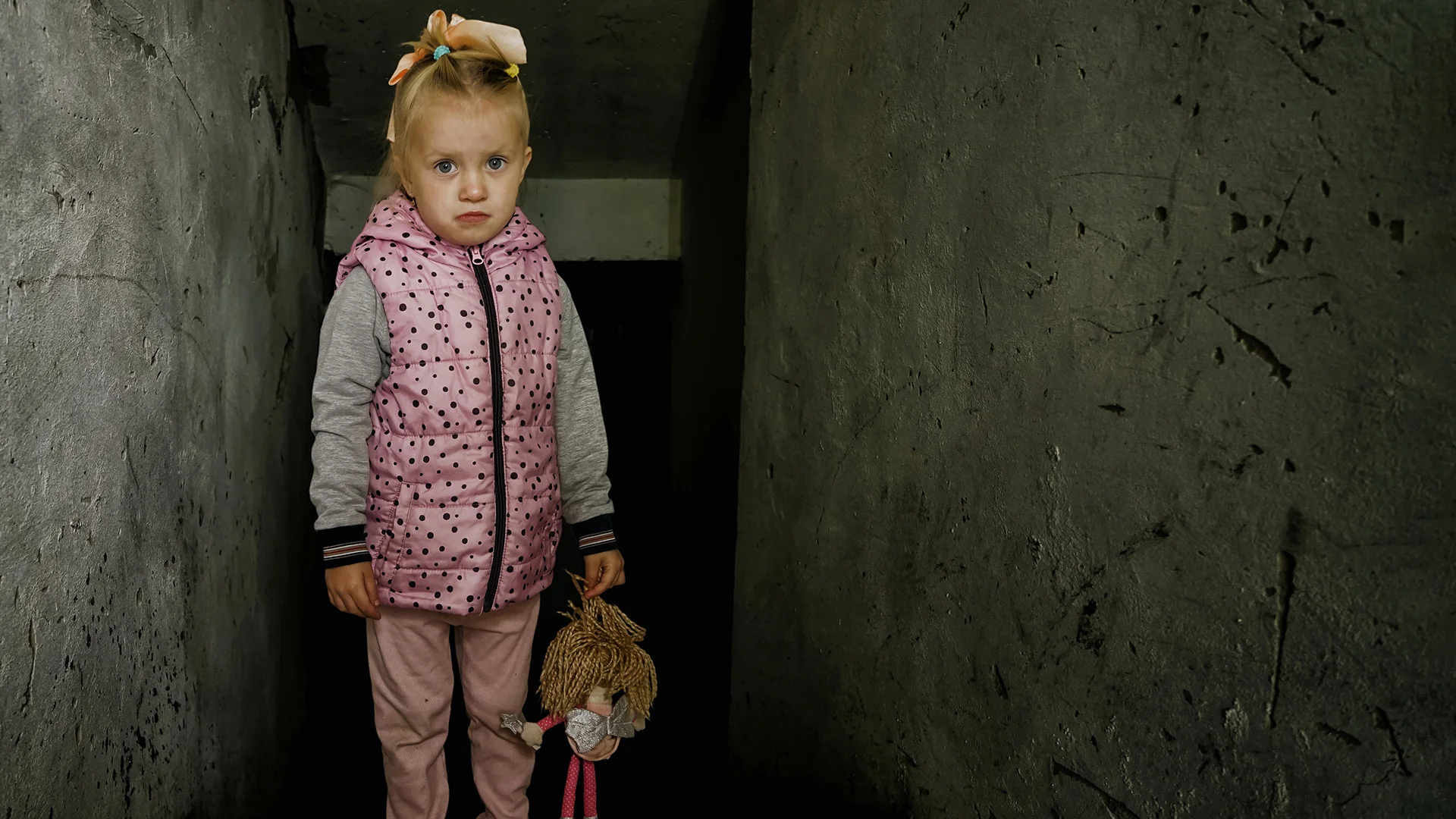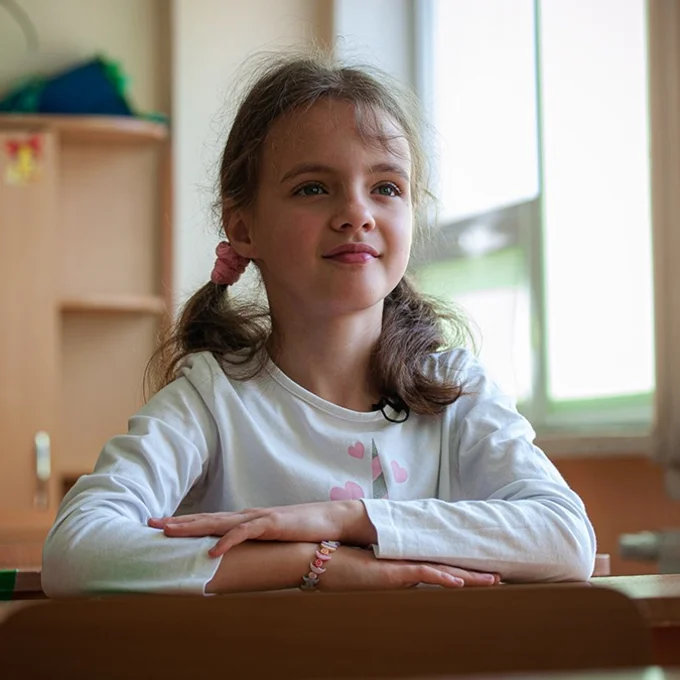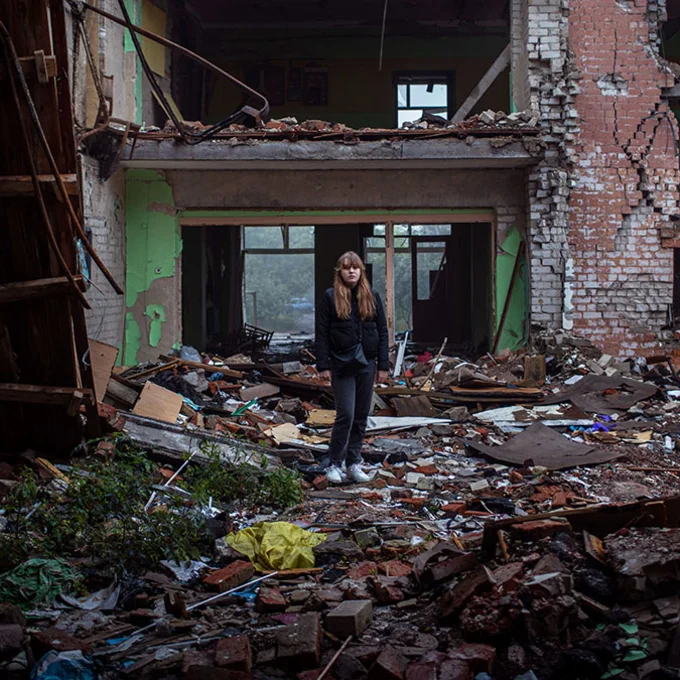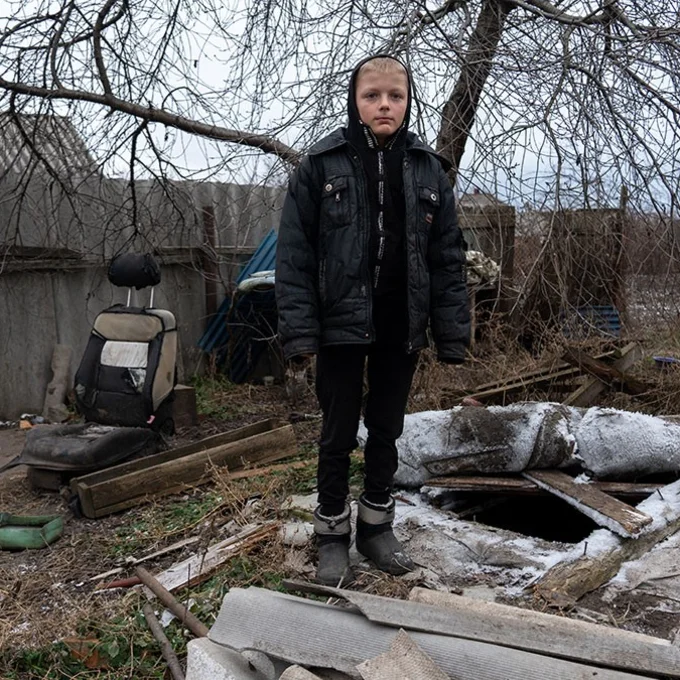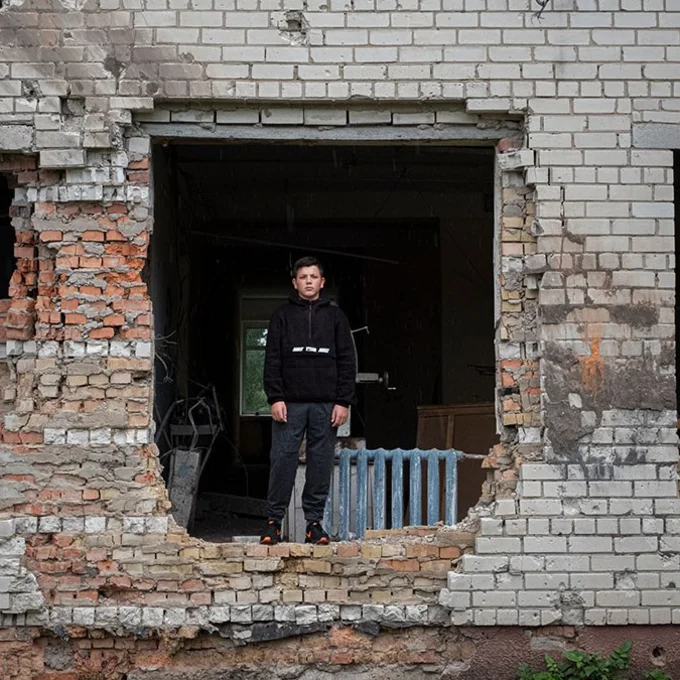After three years of war, over 14 million people in Ukraine depend on humanitarian aid – including 3.2 million children. UNICEF is working in Ukraine and many neighboring countries and continuing its emergency response.
The situation
The armed conflict in Ukraine has dragged on for three years and is claiming more human lives every day – including those of innocent civilians, with many children among them. Over 14 million people – around 40 percent of the population – are now dependent on humanitarian aid. Millions of people have lost their livelihoods. Access to vital services such as a water supply, heating and health care is severely restricted. The bombardment continues in many areas and is damaging countless homes and key institutions. The consequences for the population are devastating.
The outbreak of war in February 2022 sparked off the biggest refugee crisis since the Second World War. In the first year of the war in particular, millions of people had to flee their homes and seek refuge within Ukraine or in neighboring countries. Even today, around six million refugees from Ukraine are registered in Europe. Most of them are women and children. War experiences and dislocation can be seriously traumatic, particularly for children.
Meet Milana, 7, from Ukraine
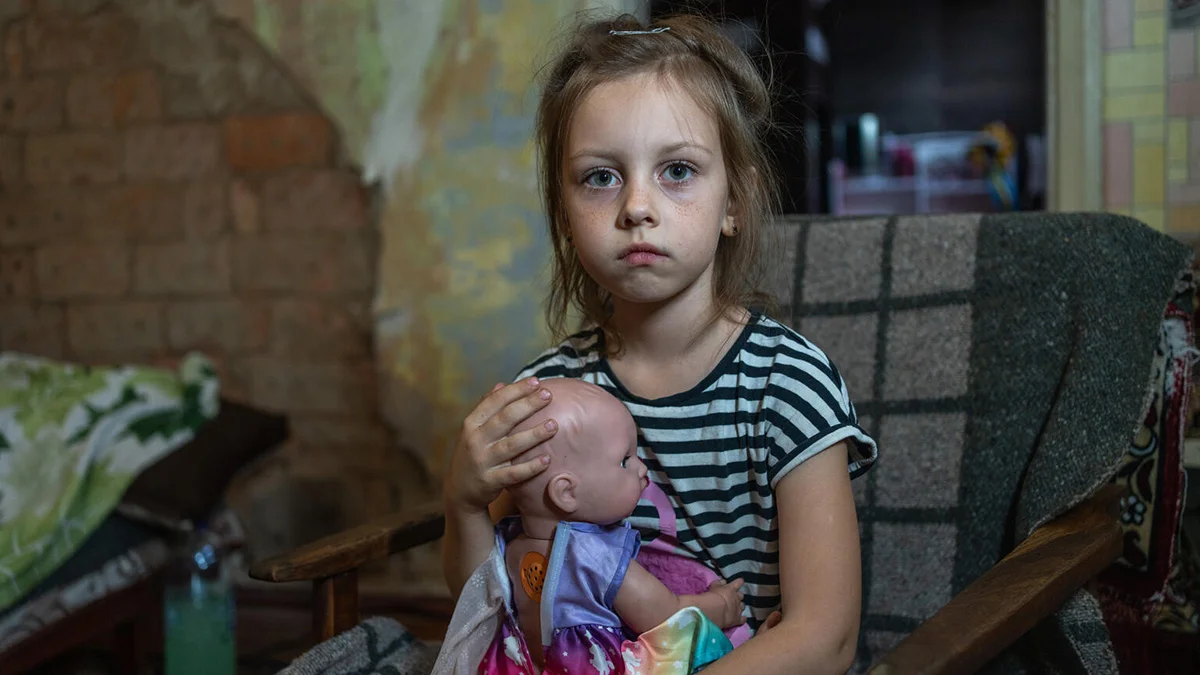
Seven-year-old Milana sits quietly in the little room where her family has been living since they left Myrnohrad, in Ukraine’s Donetsk region. She hugs tightly the thing that gives her comfort in these uncertain times – her beloved doll Omelka. Three months ago, the family had to flee their home to escape heavy shelling. “When we were leaving Myrnohrad, there was shooting,” recalls Milana. “We had to pack our things quickly and leave. I was so upset that I forgot to take Omelka. But my father went back for her so that I wouldn’t be sad.”
Parents, in a hurry to get their children out of harm’s way, often don’t have time to collect personal things. There is only enough space for essentials – clothing, important documents, some water. Often there’s only room for one teddy bear, doll or toy car, but these toys comfort them and help them feel safe. For Milana, Omelka isn’t just a doll – she is a reminder of home.
How your donation helps
UNICEF is in action not only in Ukraine, but also along the escape routes in neighboring countries.
Together with local partners...
- we provide urgently needed emergency supplies;
- we support households with cash assistance;
- we give children and families access to safe water, hygiene products and sanitation;
- we reach millions of people in the country thanks to mobile medical teams, and can give them access to medical services;
- we look after girls and boys traumatized by the war, alongside psychosocial care teams;
- we ensure that children have access to education.
During the cold winter months, UNICEF provides additional support to the population with cash assistance and winter kits containing warm clothing and blankets. In the winter season of 2024/25, we carried out repair and maintenance work on heating systems in 19 communities, benefiting 1.5 million people in Ukraine. Furthermore, we ensured that water and sanitation facilities as well as healthcare facilities remained operational despite power outages.
UNICEF has been working in Ukraine and neighboring countries since the outbreak of the war to provide refugee families with basic necessities. We have set up contact points for refugee children and their families along the escape routes in the border areas of several countries, such as the Republic of Moldova and Romania.
At the contact points, also known as Blue Dots, UNICEF is creating child-friendly spaces where girls and boys can relax and play. Trained staff help children come to terms with their experiences and also look after refugees who are unaccompanied minors. Mothers of small children can retreat to protected rooms, for example to breastfeed and change diapers. Parents can obtain information about other support services at the Blue Dots. Families can also obtain relief supplies such as hygiene items and blankets.
